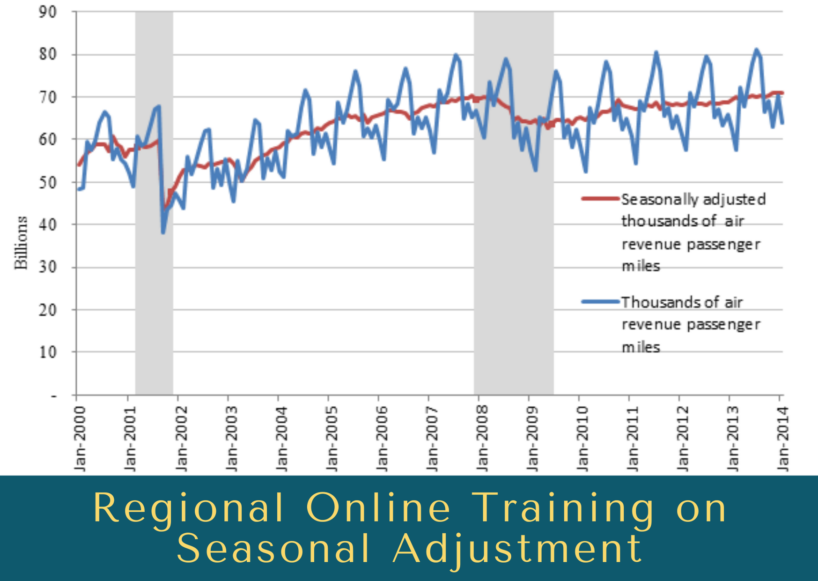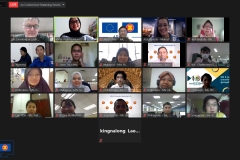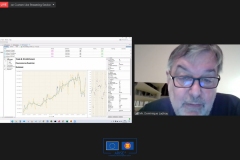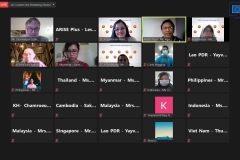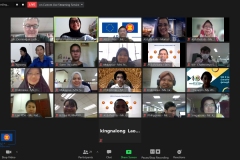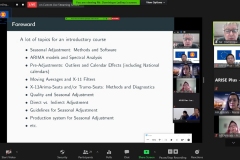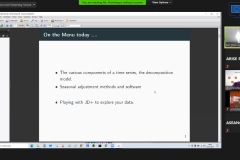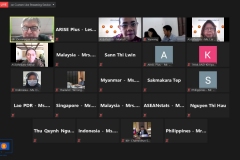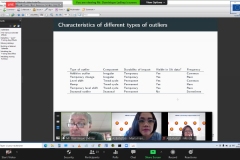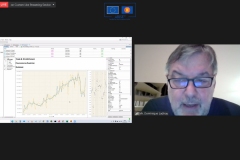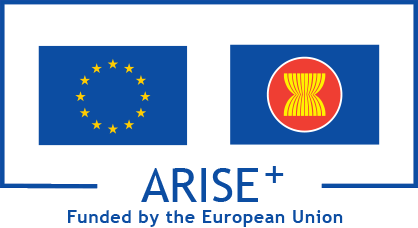Statistics are crucial to measure progress in various fields, such as in socio-economic conditions. Various factors affect the trend and behavior of every statistical indicator that people use to measure. Time series data (quarterly, monthly or even weekly), such as retail sales, export or import data, exhibit movements which are subject to seasonal and calendar effects, including trading day and holiday effects. Easter has proved to have significant impact in many time series data in Europe and North America. Chinese’s new year effect is notable in China and countries observing the lunar year.
More and more national statistical authorities are practicing Seasonal Adjustment, in order to help users, in interpreting published quarterly or monthly time series data, so that users are able to see the underlying movement from the time series they observed. Seasonal Adjustment is useful as it provides the actual month-to-month or quarter-to-quarter growth, avoiding misleading information caused by the presence of seasonal, calendar and trading day effects for example; and is also important for forecasting purposes. Forecasting and understanding repetitive fluctuations in economic activity (business-cycles) as well as the short-term and the long-term movements in time series is important for decision making.
The importance of Seasonal Adjustment in ASEAN Member States is mostly still underrated. Supported by the Arise Plus project, ASEAN has just embarked on the strengthening staff skills in data analysis, by providing the basic training on Seasonal Adjustment, using JDemetra+. This 9 and a half-day training delivered by Mr. Dominique Ladiray, an outstanding expert in Seasonal Adjustment, was attended by 23 participants from 10 ASEAN Countries, representing the Working Group on International Merchandise Trade Statistics and Working Group on System of National Accounts, between 22 February-4 March. The basic training is meant to equip staff with the right tools for dealing with seasonal adjustment on quarterly data. Participants were able to perform seasonal adjustment and quality reporting on quarterly data. More complicated issues as found in most monthly data or, even, daily data, would require more sophisticated techniques and familiarity with handling calendar effect and moving holidays effect, which will be provided in the advanced training.
To promote ASEAN-help-ASEAN and sustainability, the next training could be designed as a Training of Trainers scheme to allow trained staff in region to be able in a near future to provide such assistance in ASEAN Member States or to be able share their knowledge in the domain.
